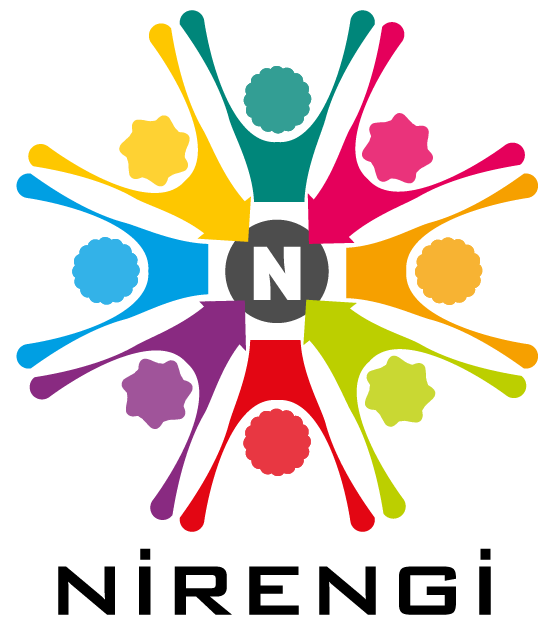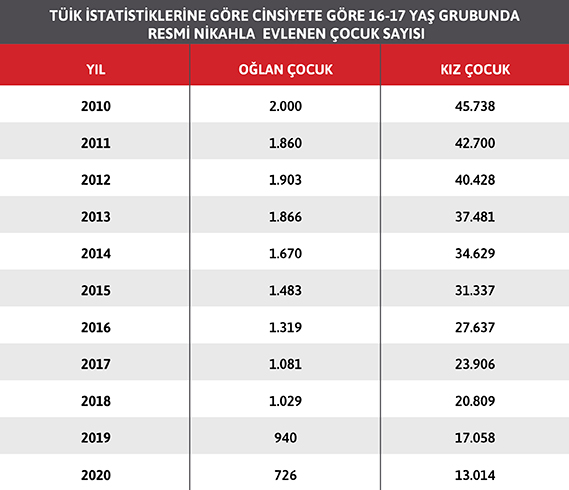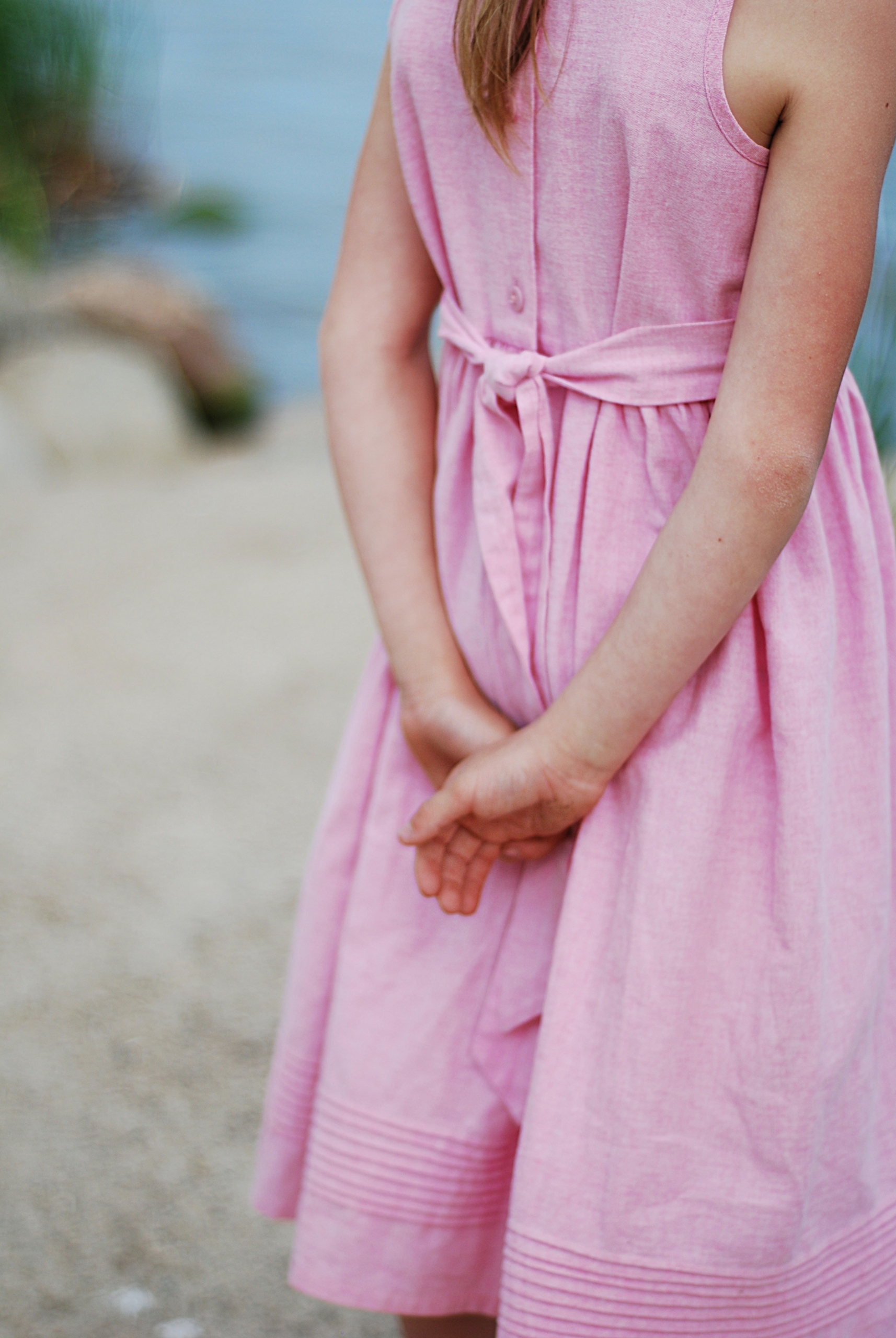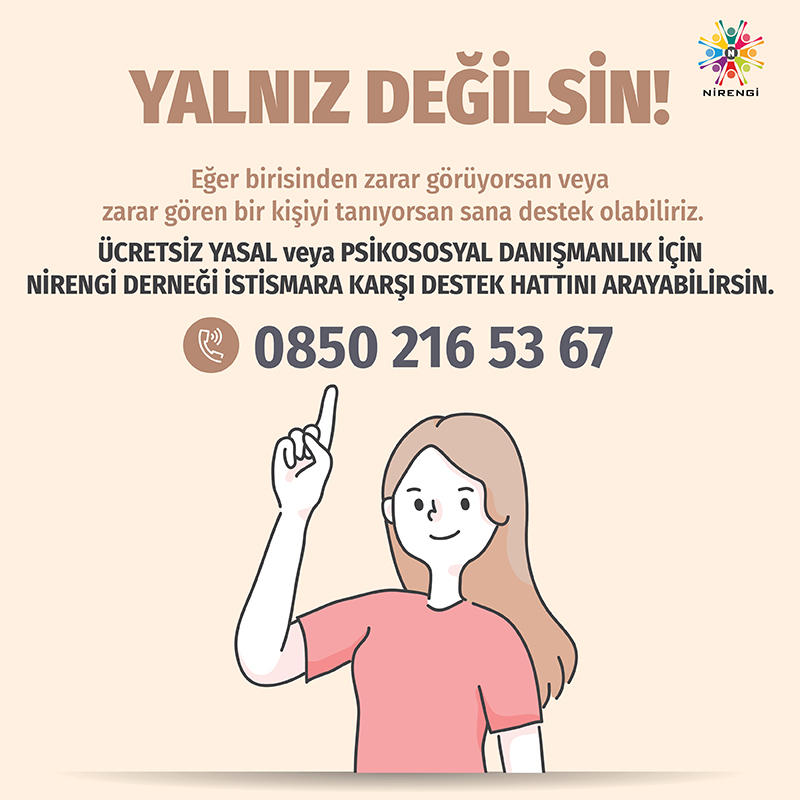CHILD, EARLY AND FORCED MARRIAGES
As the Nirengi Association, we have started internal capacity building activities with the United Nations Population Fund (UNFPA) in the field of child, early and forced marriages which will last for 12 months, starting from July 2021. Therefore, the Nirengi team will have the opportunity to participate in trainings on many issues, especially legal legislation, health risks and risk prevention, and develop a common language and understanding within the team about child, early and forced marriages.
We would like to share examples of information notes on the concepts of child, early and forced marriages which is the main subject of the project, the prominent issues related to the legal legislation in Turkey, and the health risks caused by child, early and forced marriages.
FUNDAMENTAL CONCEPTS
What do the concepts of child, early and forced marriages mean, and what are the differences between them?
CHILD MARRIAGE
“Child marriage” refers to formal or informal marriages that at least one of the parties is a child. According to Child Protection Law No. 5395, the child is defined as “A person under the age of eighteen, even if she/he reaches maturity at an earlier age”. Hence, child marriage indicates the marriage that has one of the parties under the age of eighteen. It doesn’t matter if the marriage is legally possible or if it is a formal marriage, nor can the child’s wish or consent be discussed.
EARLY MARRIAGE
“Early marriage” refers to marriages between people who are not yet at the level of development to take on the responsibilities of marriage. The statement of “early marriages including child marriage” in the UN documents points out that early marriages do not only consist of child marriages. The main issue is that the people to be married are not yet ready to consent to the marriage due to factors such as being under the age of 18 or not having completed their physical, emotional, sexual, and psychological development even if they are older than 18, or not having enough information about their life options.
FORCED MARRIAGE
“Forced marriage” refers to marriages that at least one of the people to be married does not give full and free consent to the marriage. Forced marriages can be in various forms. Human trafficking, traditionally arranged marriages, abduction of girl, marriages for the purpose of obtaining citizenship, and all forms of marriage that the victim lacks the capacity of giving full and informed consent are examples of forced marriages.
EXAMPLES OF LEGAL LEGISLATION ISSUES
What is the legal age for marriage in Turkey, is it possible to get officially married before the age of 18?
The legal age of marriage in Turkey is 18. Moreover, children at the age of 17 can get married with the permission of their parents or legal guardians. Children over the age of 16 can get married with a special permission from court “under exceptional circumstances and providing a vital reason”.
According to the Civil Code in Turkey, the marriage of children over the age of 16 is restricted by the condition stated above; however, considering the physical and mental development of the children, their participation in the institution of marriage contradicts with the principle of “the best interests of the child”. Children involved in the institution of marriage become vulnerable to risks and threats in many areas such as health, education, and security.
What are the data examples of children getting married or being married off in Turkey?
According to Turkish Statistical Institute (TSI), the number of children categorized by gender in the 16-17 age group who were legally married in 2010-2020 is as follows:
* In 2020, the impact of the lockdown decisions taken due to the Covid-19 pandemic, which affected the world and our country, and limit collective events such as weddings, engagements, etc. should be taken into consideration.
These data were prepared by TSI based on the number of civil marriages performed at Marriage Offices.
Additionally, it is quite difficult to find data based on detailed field studies of continuing or being forced to continue a married life without a civil marriage under the age of 18.
According to the Turkey Demographic and Health Survey Report prepared by Hacettepe University Institute of Population Studies in 2018 as a result of interviews with a total of 7,345 women and girls between the ages of 15 to 29;
“In Turkey, 14.7% of women between the ages of 20 to 24 married before the age of 18, and 2% of them married before the age of 15. In the same age group, 44.8% of the Syrian women living in Turkey were married before the age of 18, and 4% of them married before the age of 15. “
21% of the women aged between 25 to 49 were married before the age of 18, and 4% of them were married before the age of 15. In the same age group, 38% of the Syrian women living in Turkey were married before the age of 18, and 12% of them married before the age of 15.
Although there is a decrease in the number of child marriages according to official marriage data, it can be clearly seen that especially the rate of marriage of girls is considerably higher than that of boys. This situation is also a reflection of gender inequality.
EFFECTS OF CHILD, EARLY AND FORCED MARRIAGES
What are the negative outcomes of the child, early and forced marriages?
Child, early and forced marriages include forms of physical, sexual, economic, and emotional abuse. It violates children’s rights to life, security, education, and health, ignores their freedom, and deepens inequalities between boys and girls (UNFPA, 2021).
Child, early and forced marriages can cause serious negative outcomes that affect every aspect of life, starting from early age periods. Marriage for the individual who is not yet ready for the responsibilities of marriage:
- can disrupt/threaten physical and mental health,
- which can increase the risk of exposure to violence,
- becomes a very serious risk that can impede access to education.
The negative outcomes and risks caused by child, early and forced marriages are discussed in detail under these topics below.
Physical Health: Especially in girls, due to early pregnancies, health issues of mothers or the baby, numerous miscarriages, risk of death during birth, unwanted, early, or frequent pregnancies, exposure to sexually transmitted diseases and many similar health risks are observed .
Every year, 11% of the births are given by girls between the ages of 15 to 19, and every year 50.000 girls lose their lives due to pregnancy. According to UNFPA figures, there are 7.3 million births under the age of 18 in developing countries each year, and 2 million of these births are given by girls under the age of 15 (UNFPA, 2013).
The main cause of death of the girls aged between 15 to 19 is complications due to pregnancy and birth (WHO, 2018; as cited in UNFPA, 2020). Moreover, girls who do not have a civil marriage and are under the age of legal marriage must be reported by the health teams that provide pregnancy follow-up and delivery services. This situation may cause the girls’ access to health services to be prevented by their spouse or family in order to avoid legal sanction and may make girls vulnerable to all kinds of health risks (Yakıt, Coşkun, 2014).
Mental/Psychological Health: Trauma, depression, anxiety, suicide attempt, withdrawal from social life, substance use, risky behaviors, and psychosomatic problems can be observed frequently in people who are subjected to child, early and forced marriages (UNFPA, 2021). One of the important reasons of the negative psychological effects of child, early and forced marriages and these effects lasting throughout life is that it is being experienced during adolescence. In this period of life, children try to complete their physical, psychological, and social development and to form their unique identity. The physical changes that come with adolescence may cause a false perception in the society that the child is a “little adult” and may cause the idea that the child is ready for marriage. However, marriage before reaching sufficient physical and psychological maturity causes children to face many responsibilities that are not suitable for their age, and causes them to break away from their peers, which interrupts their social development (Aktepe ve Atay, 2017).
In a study published in 2021, women who were married under the age of 17 and women who were married over the age of 20 were compared in terms of marriage type, exposure to domestic physical violence, alcohol, substance and tobacco use, and mental health disorders. According to the results of the study, more than half of women who were married at an early age have at least one mental disorder. Women who were married at an early age reported that they were exposed to physical violence during marriage more than women who were married at the age of 20 and over. Additionally, it was stated that rates of suicide attempts and amount of nicotine consumption of women who were married at an early age are considerably higher than women who were married after the age of 20 (Kaya, Alnak, Subaşı, Arslan, Şahin, 2022).
Being Subjected to Violence: It has been proven by research that children who are subjected to child, early and forced marriages are exposed to many types of violence more than those who are not. According to the research conducted by the International Center for Research on Women, which compares the rates of exposure to violence between girls married at a young age and women married in other age groups, girls who marry at a young age are exposed to physical violence 2 times more and sexual violence 3 times more than women in other age groups (Malatyalı, 2014).
According to the “Research on Domestic Violence Against Women in Turkey” conducted in 2014, while the rate of physical violence is 48% among women who get married at an early age, it is 31% among women who get married after the age of 18. Moreover, 19% of women who got married before the age of 18, and 10% of women who got married after the age of 18 were exposed to sexual violence. The same research indicated that 42% of women who got married after the age of 18 have been exposed to emotional violence/abuse at some point in their life, while this rate reaches 51% for those who were married before the age of 18 (T.C. Aile ve Sosyal Politikalar Bakanlığı Kadının Statüsü Genel Müdürlüğü, Hacettepe Üniversitesi Nüfus Etütleri Enstitüsü, 2014).
Access to Education: Although the relationship between child marriage and school dropout is complex, qualitative studies conducted in Turkey show that it is very difficult for girls who are married to continue their education due to the burden of housework. Restriction of freedom of movement with marriage, pregnancy and having children, home-related responsibilities and, in some countries, legal barriers to married/pregnant/with children girls’ attendance at school/work disconnect children from education life. Disconnection from education and employment prevents girls from accessing social networks and support services and causes them to enter a cycle of poverty. The isolation of children from education by marriage makes it difficult for them to acquire a profession, reduces their participation in working life and increases their dependence on other people because they do not have an income of their own. All these negativities affect not only young girls and women, but also their children (UNFPA,2020). Uneducated girls are three times more likely to marry at the age of 18 than girls with secondary or higher education. More than 60% of uneducated women (aged between 20-24) were married before the age of 18 (UNICEF, 2018; as cited in UNFPA, 2021).
Such risks and adverse effects not only cause life-long physical, mental and social injuries/barriers/damages to the married child, but also hinder the development of the society in economic and social areas.
Can child, early and forced marriages be prevented and if possible, how?
It is possible to prevent child, early and forced marriages as in many problem areas in Turkey and in the world. This requires cross-sectoral and inter-institutional joint programs and cooperation at national and international level.
Two examples of the most fundamental activities for the prevention of child, early and forced marriages are given below.
Educational and Informative Activities
In order to prevent CEFM, it would be appropriate to follow policies that draw attention to this problem and raise awareness in the society. The United Nations Entity for Gender Equality and the Empowerment of Women (UN Women) published a new report (2021) stating the perception of men regarding child, early and forced marriages in Turkey. According to the data obtained from 2,733 male and 49 female participants interviewed in 9 provinces across Turkey in this report;
Intervention and Support Activities
Another factor for effective prevention of child, early and forced marriages is working towards ensuring the availability and usability of support and intervention tools for victims or those who feel under pressure.
For instance, unlike Turkish Law, forced marriage has been included in the legislation under a separate title as a Law or article of Law in the United Kingdom, Germany, Sweden, the Netherlands, and Switzerland. Additionally, the United Kingdom has established 24/7 support lines for the intervention of forced marriages and support victim. These support lines belong to various institutions and organizations, including the state and non-governmental organizations.
As Nirengi Association, we provide free legal counseling and psychosocial support to children who are victims of abuse and their caregivers through the Support Line Against Child Abuse, which was launched in 2021. Similar versions of this support line are being tried to be implemented around the world to prevent child, early and forced marriages. Turkey is also in urgent need of support lines in the context of the CEFM.
In terms of legal legislation in Turkey, it would be appropriate to discuss child, early and forced marriages under a separate heading, to determine both administrative and criminal sanctions, to provide psychosocial and legal support to those who are victims or under pressure in terms of child, early and forced marriages, and to carry out joint studies between the state and non-governmental organizations working in these fields.
REFERENCES
-
Aktepe, E., Atay, İ. M. (2017). Çocuk Evlilikleri ve Psikososyal Sonuçları. Current Approaches In Psychiatry/Psikiyatride Güncel Yaklaşımlar.
-
Kaya, H., Alnak, A., Subaşı, B. Z., Arslan, N. B., & Şahin, D. (2022). Erken yaşta evliliklerin ruhsal sonuçları: Kadınların ruhsal ve cinsel sağlığındaki uzun dönem etkiler. Klinik Psikiyatri Dergisi, 25(1), 57-66.
-
Malatyalı, M.K. (2014) Türkiye’de çocuk gelin sorunu. Nesne Psikoloji Dergisi, 3:27-38.
-
T.C. Aile ve Sosyal Politikalar Bakanlığı Kadının Statüsü Genel Müdürlüğü, Hacettepe Üniversitesi Nüfus Etütleri Enstitüsü (2014) Türkiye’de Kadına Yönelik Aile İçi Şiddet Araştırması Özet Rapor. Erişim adresi: http://www.hips.hacettepe.edu.tr/TKAA2014_Ozet_Rapor.pdf
-
UNFPA (2013). The State of World Population 2013. Motherhood in Childhood. Erişim adresi: https://www.unfpa.org/press/state-world-population-2013-motherhood-childhood
-
UNFPA (2020). Çocuk Yaşta, Erken Ve Zorla Evlılıklerın Sağlık Rısklerı Ve Sonuçlarına Çok Sektörlü Yaklaşım. Erişim adresi: https://turkey.unfpa.org/sites/default/files/pub-pdf/unfpa_cyeze_sagliksonuclariraporu_turkce.pdf)
-
UNFPA (2021) Çocuk Yaşta, Erken ve Zorla Evliliklerin Önlenmesi Temel Bilgiler Rehberi. Erişim adresi: https://turkey.unfpa.org/sites/default/files/pub-pdf/unfpa_temelbilgilerrehber.02.07.21.rev1_.pdf
-
UNICEF (2018) Child Marriages: Last trends an future prospects,, https://data.unicef.org/resources/child-marriage-latest-trends-and-futureprospects
-
WHO (2018). Adolescents: Health Risks and Solutions. Erişim adresi: https://www.who.int/news-room/factsheets/detail/adolescents-health-risks-and-solutions
-
Yakıt, E., Coşkun A. M. (2014). Toplumsal Açıdan Çocuk Yaşta Evlilikler Gerçeği: Hemşire ve Ebenin Sorumluluğu. Hemşirelikte Eğitim ve Araştırma Dergisi. 2014;11 (3): 3-10.












